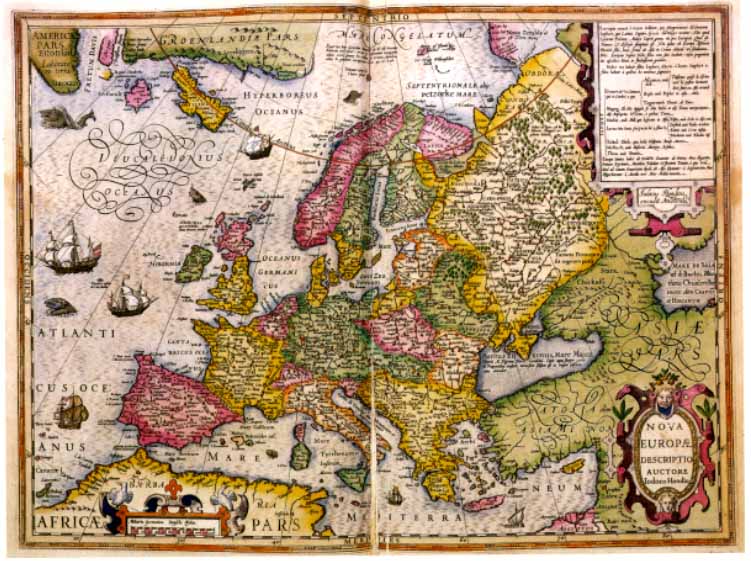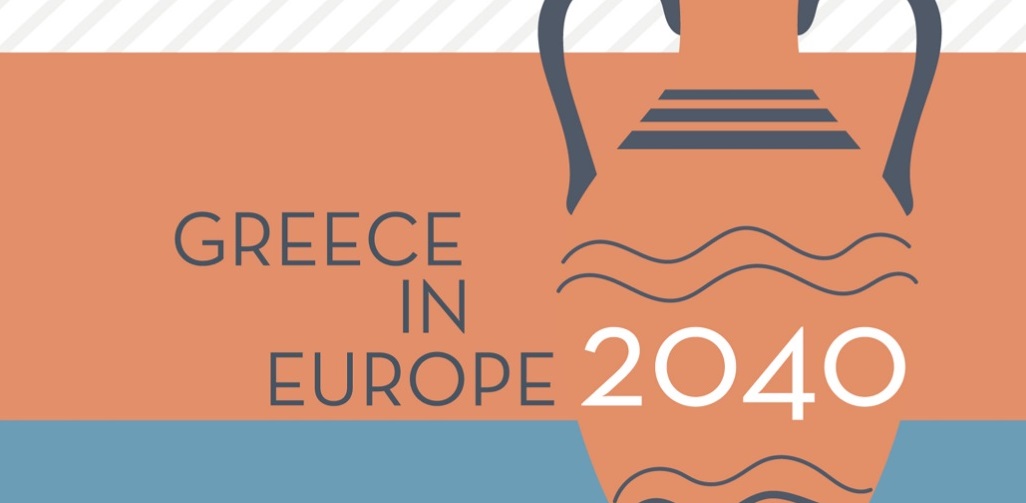Greece in Europe 2040 is the product of a working group chaired by ELIAMEP’s President of the Board and Professor at Sciences Po, Paris, Loukas Tsoukalis, and consisting the following Greek experts on European integration: Maria Demertzis, Deputy Director, Bruegel, Brussels; Janis Emmanouilidis, Director of Studies, European Policy Centre, Brussels; Thodoris Georgakopoulos, Editorial Director, diANEOsis; Ruby Gropas, Adviser IDEA, European Commission; George Pagoulatos, Director General of ELIAMEP; Professor, Athens University of Economics and Business and Axel Sotiris Wallden, Senior Policy Adviser ELIAMEP, former official of the European Commission.
ELIAMEP (The Hellenic Foundation For European & Foreign Policy) is a private, independent, non-profit-making research and training institute in Athens that ranked as the number one think tank in Greece by the University of Pennsylvania’s 2019 Global Think Tank Ranking. This report was part of the White Paper on Greece 2040 produced under the auspices of the ‘Greece 2021’ Committee to mark the 200th anniversary of the Greek War of Independence. It is available online by Papazisis Publications (opens pfd link).Below you can read a summary of the report’s main points.
The path taken by the European Union (EU) between now and 2040 will be highly consequential for Greece. After all, Greece’s EU membership is the most significant factor in its foreign policy, as well as being of critical importance for the nation’s economy and public policy in general. As we all know European unification lies at the intersection of foreign and domestic policy.
The report examines the most significant trends that are expected to impact global developments in the years to come -with a focus on demographics, climate change and the technological revolution- as well as Europe’s economic model, societies and political institutions, and its international relations.
Main trends and challenges | Europe and the international environment
Europe’s relative import in the global balance of power will decline in the years to come. An ageing Europe with a dwindling population will be called upon to defend common interests and values in an era in which the centre of gravity is moving from West to East, and in a rapidly changing international context with power more broadly distributed and multiple potential ignition points. In other words, the international environment is undergoing major changes and Europe will be able to influence developments and defend its interests only if it acts as a united Europe and not as separate states.
Europe, same as other areas around the world will have to face the immense challenge that is climate change. Despite the many and daunting difficulties, the EU remains a pioneer in tackling climate change with the goal of becoming climate neutral by 2050 and reducing emissions by 55% by 2030. The European Green Deal is expected to be the new largescale joint venture after the single market and the euro. The new package of measures announced by the Commission in the summer of 2021 are consistent with this objective, although their implementation is expected to be extremely difficult.
As far as the digital revolution and new technologies are concerned Europe is at the forefront as a regulatory super-power, however it lags behind in production as it not currently does not have many large high-tech Companies. Countries that can control digital technologies, whether by developing systems internally or by making the best use of them, will increasingly be in a position to mould economic, social and political developments around the world. While Europe has a high level of education, skills and innovation, it does not fulfill the prerequisites for financing high-risk business initiatives. Since the future of productivity lies mainly in the knowledge-based economy that requires high-risk financing of this kind, the EU will need to take important initiatives in this direction, including the creation of a genuine capital markets union.
The report deals as well with the developments inside the EU and its Member States: The new political landscape that has emerged is characterized by fragmentation and diversity. This has made it harder to form ruling majorities, leading to fragile coalition governments and – often – to increased political instability. During this period, the so-called anti-system parties and populist parties have grown in strength. In societies with growing inequalities where the post-war social contract is under ever-growing pressure, the value ascribed to liberal parliamentary democracy, particularly among the younger generations, is increasingly in decline. Participation in elections is falling, and there has been an even greater decrease in membership of political parties. Political fluidity and social uncertainty will be inevitable characteristics during this period. As far as immigration goes, it will continue to be one of the biggest, and most difficult to solve political issues.
The EU’s resilience to the successive crises of recent years, as well as critical decisions that impact on the course of European integration, such as those reached in 2020 with regard to addressing the economic consequences of the pandemic, indicate the considerable importance which national political leaderships ascribe to the survival of the EU, despite the major disagreements that exist over numerous individual issues. The EU’s resilience is also reinforced by the positive image which the majority of its citizens currently have of the European project.
Managing the crisis facing liberal democracy will not be easy. It will require more inclusive economic policies aimed at reducing economic and social inequalities, as well as the intergenerational inequalities that already constitute a major problem. The international environment in which the EU will have to maneuver over the next twenty years will be determined by a number of factors: technological progress, the course of climate change, possible new pandemics, developments in the world economy and economic governance, arms control and nuclear proliferation, regional conflicts, terrorism. And, of course, by the emergence of other major centres of economic and political power.
The international context will range along the spectrum from a conflict-prone anarchic system to a more organized rule-based global international order of cooperation. The behavior of the major international players, and primarily the US and China, will be decisive, since it is largely these two nations that will set the tone for how global challenges will be addressed, how the world economy and the international legal order will be organized, and how they will deal with one another.
The global power shift from West to East, with the centre of economic and politico-military power moving from the West to the East, from North America and Europe to China, India and other emerging economies, is almost certain to continue. By 2040, there will be a change – most likely radical – in the balance of power. What is much less clear is how the ‘winners’ and the losers’, which will presumably include the EU, will manage this development. In 2040, China will most probably be the world’s leading economic power, If and to what extent the behaviour of this rising China is confrontational will largely depend on how the West reacts.

Five scenarios for the EU of 2040
Scenario 1: The Titanic
The EU falls apart, along with its institutions, exhausted by successive crises that have heightened its internal divisions and which are beyond its institutional capacity to resolve. This extreme scenario entails the dismantling of the European single market and the loss of the right of free movement and settlement within Europe. The rise of nationalism in Europe is accompanied by instability and confrontation between European nations and with third countries. The former EU Member States lose political and economic influence at the global level. Most European countries seek the protection of Great Powers in the context of an asymmetrical relationship of patronage.
Scenario 2: A Minimal Union
The EU is unable to proceed any further towards integration. Member States refuse to grant the EU new areas of competence, the vision of a united Europe is lost, and the path to deeper integration is abandoned. The incomplete monetary union remains prone to crises, which weaken its internal economic, social and political cohesion. The economies on the Euro periphery are particularly vulnerable to crises that lead to rising borrowing costs as well as financial and economic instability. Divided internally, the EU remains at the margins of global developments.
Scenario 3: A Europe of small steps
The Union is characterized by great resilience to crises, from which it often emerges stronger and more united than before. Nonetheless, disagreements over the future of the EU preclude any big steps towards further unification. The implementation of the programmes financed by the Recovery Fund has boosted development in the economically weak EU countries and fed into a trend towards the re-convergence of the euro area economies. The EU is improving its capacity to collaborate on immigration and asylum policy. However, there is still no single European policy, while the protection of external borders remains chiefly the responsibility of individual Member States.
Scenario 4: Coalitions of the willing
A group of EU Member States, led by France and Germany, are moving towards closer integration in specific areas of economic, foreign and/or other policy. The most likely “coalition of the willing” forms around the Eurozone, with decisions being made by qualified majority voting. These countries are moving towards a closer fiscal integration of the euro, setting up a Eurozone budget. The preconditions for a common European immigration and asylum policy start to fall into place. The “coalition of the willing” acquires a regional and international stature that is greater than the sum of its member.
Scenario 5: The United States of Europe
The EU and all its Member States take the historic leap towards a full Political and Economic Union. A Constituent Assembly adopts a European Constitution which transforms the EU into a true federal democracy.The Eurozone becomes a full-fledged economic, fiscal, banking and political union. The EU becomes a powerful guarantor of rights and the rule of law in Europe, it acquires a common foreign and security policy, and the European Defence Union becomes a reality. As a result, the EU develops into an important international power centre, whose strategic autonomy allows it to promote its distinct interests globally.
The “Titanic” and “United States of Europe” are highly unlikely, however in a world undergoing such radical changes and instability they cannot be ruled out completely. The more likely outcomes are to be found in the intermediate scenarios and in possible combinations of two or more scenarios. What it crucial is that all in-between scenarios highlight the serious possibility of a more differentiated EU through the creation of “coalitions of the willing”, meaning there will be forms of enhanced cooperation and unification in which not all the Member States will participate. This has been after all the trend during the past 20, if not 30 years in the EU.
Consequences and choices for Greece
To date, Greece’s EU participation has been marked by the right strategic choices made at critical historic turning points which determined its progress thereafter, by significant diplomatic successes in European negotiations, but also by numerous crises which have affected our relationship with the rest of Europe – far more than Greece’s size would seem to warrant.
Greece’s relationship with European integration is both existential and transactional. It is existential, because in our difficult corner of the world, the country needs powerful allies and a strong Europe as an additional shield. It is also existential because a European pole of democratic, economic and geopolitical stability can both serve as a reference point and contribute crucially to a qualitative upgrading of the Hellenic Republic. Greece’s relationship with the EU is obviously also a transactional relationship, given the enormous importance of European resources and the transfer of know-how for the country’s economic development – provided, however, that the Greek economy can compete successfully in an environment whose rules often reflect the interests of more advanced economies.
For all these reasons, Greece needs a strong and united Europe that will function more as a federation and less as a form of intergovernmental cooperation in which the interests of the more powerful states tend to dominate. In an extremely competitive environment such as the European internal market with a common currency, Greece can maximize the benefits of membership given two preconditions: firstly,that it has a healthy and outward-looking economy that implements its digital and green transformations at top speed, which sometimes requires difficult political choices between competitiveness and social solidarity and, secondly, a strong European policy of cohesion and solidarity. The first condition depends mainly on us, the second clearly much less so.
A third requirement is a modern state that sets the basic parameters and guides the domestic economy – to what degree is a matter of ideological preference – a state that negotiates with competence and flexibility in Brussels and applies Community rules effectively. What is also required is a rudimentary political consensus on the fundamental priorities of Greece’s European and foreign policy. In a more differentiated EU, which is the most likely development in the years to come, the crucial question for Greece is whether it will be able to participate in the “coalitions of the willing” and on what conditions.
A strong country with self-confidence, a modern state, a competitive economy and social cohesion, a minimum of consensus on the fundamental goals of European and foreign policy, ever present in European affairs and decision-making and with well-chosen alliances will clearly be far better placed to join the ‘fast track’ in a multi-speed Europe and influence developments. If Greece is left outside the “coalition of the willing”, however, there is a risk of its falling into a perilous vicious circle of introversion and external insecurity, economic stasis, and instability both political and social. It is precisely this vicious circle we must work to avoid with all the means at our disposal.
I.L.
TAGS: EU POLITICS | REPORTS | THINK TANKS














